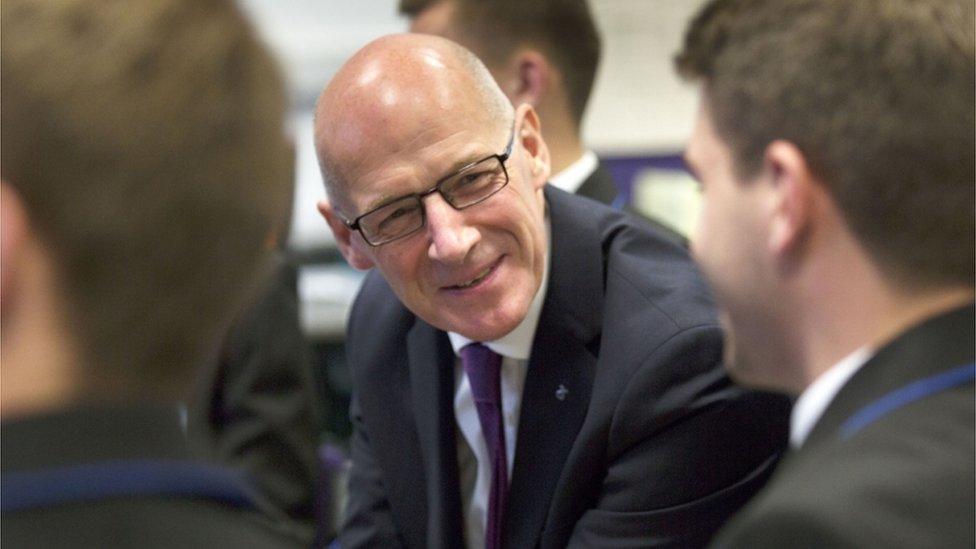Testing times for the Scottish government
- Published

The subject of primary education has become a hot topic at Holyrood
Just been chatting to parents at a primary school round the corner from Holyrood. You will not be remotely surprised to learn that they are decidedly engaged in the controversy about P1 assessment.
Not, of course, the political battle which will come to a head in parliament tomorrow. Rather, the pragmatic consideration as to whether these assessments are a good idea or not.
Opinion was, understandably, divided. That division undoubtedly reflects established individual views, perhaps amplified either way by the attendant war of words.
I found some parents open to further discussion, if generally veering one way or t'other. I also found some decidedly committed, either way.
For example, the parent who firmly backed assessment, arguing that it was right to discern from an early stage whether there were any issues with a child's education.
For example, in the other direction, the parent who argued that assessment in any form did not sit well with the play-based ethos of P1: a year which, it was argued, should be about adapting to school life.
You can find elsewhere on this site an example of the sort of assessment kids might undergo. To be clear, these are not the precise assessments deployed this year or, decisions pending, to be used in the future.
In similar fashion, the Scottish government made model assessments available today to MSPs and, separately, to the wicked media.
It was part of an endeavour by the Education Secretary John Swinney to lessen the volume of the remarkable row which has attended these assessments.
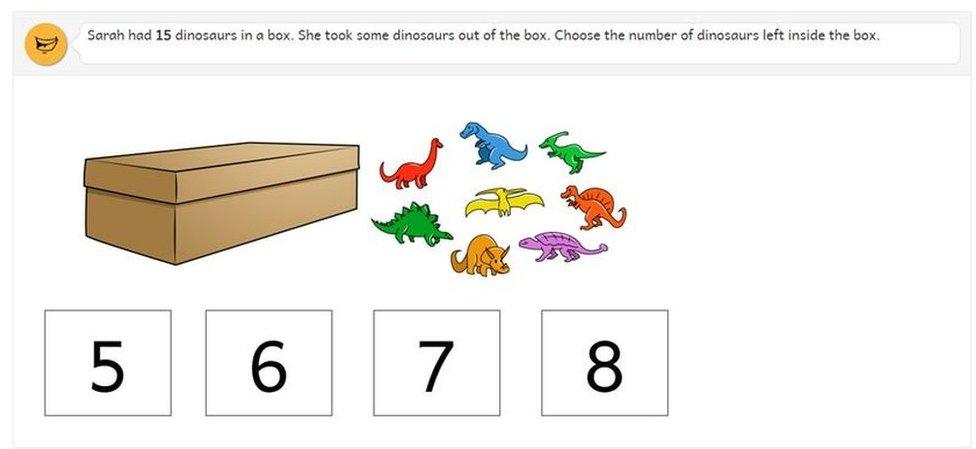
An example of one of the assessment questions given to P1 pupils
In essence, Mr Swinney makes a number of points in defending the P1 exercise.
Firstly, he notes that 29 out of 32 councils previously conducted their own form of assessment. His version is designed to standardise that effort - to assist, in short.
Secondly, he says it is part of a much wider effort to check up on pupil attainment at various stages as part of the Curriculum for Excellence. Mr Swinney, understandably, tends not to add that this endeavour follows a series of negative indicators in Scottish education.
Thirdly, he says - again and again - that the P1 assessments are just that: not tests which are marked, not exams which might cause pupils anxiety. They are, he argues, explicitly designed to give teachers a tool to monitor early progress. Or lack of it.
In essence, the opponents say the assessments are tests in all but name - or, at least, inchoate versions of exams in the making. That they are a waste of time, diverting effort from teaching. And that they should be scrapped.
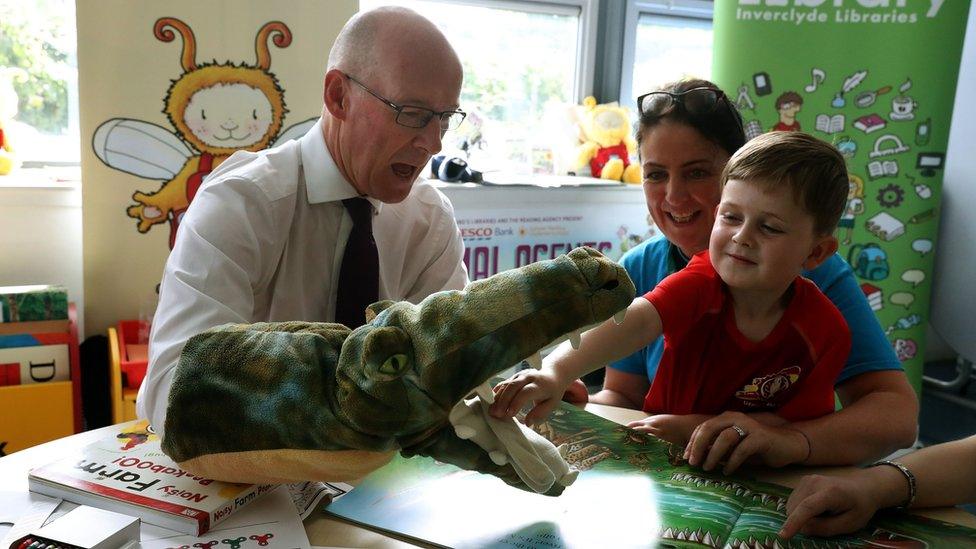
John Swinney has defended the assessments
Then the raw politics. Mr Swinney's opponents, across the political divide, scent fear in ministerial ranks. They believe the Scottish government to be vulnerable on its self-proclaimed flagship education programme.
That is why a relatively - I stress and repeat, relatively - minor aspect of broad education policy has reached totemic status. It is code for saying that the government - and Mr Swinney personally - is mucking up Scottish education.
And a rather easy code to break at that. That is why all the opposition parties will attack all out tomorrow. They are not simply criticising one policy: they are aiming at what they believe is a weak flank of the government.
That is also why, personal standing apart, Mr Swinney will defend his policy with respectful vigour in the debate tomorrow.
If pressed, he is likely to counter attack by accusing the Conservatives in particular of hypocrisy, given that P1 testing featured as part of a wider promise in their most recent Scottish manifesto. Actually, maybe even without pressure.
The Tories will respond that their policy has adapted to emerging evidence, to the changing facts. A version, perhaps, of the pragmatic comment attributed in various guises to John Maynard Keynes.
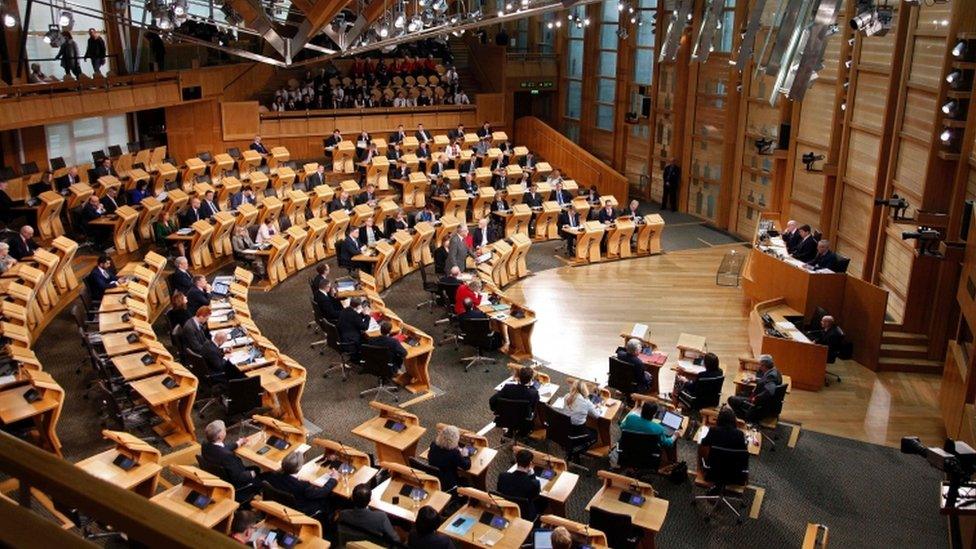
MSPs will hold a symbolic vote on the assessments on Wednesday
This is a tough one for John Swinney. The publication of model assessments today was part of a rebuttal to opponents. OK, so you've had a chance to see the assessments? You tell me what you'd do differently.
(Incidentally, if any of Mr Swinney's critics tomorrow have not taken advantage of the offer to view the assessments, they can expect a fairly sharp attack from the education secretary. When necessary, John Swinney does contumely.)
But, again, it's tough. Firstly, he will be challenged not just on P1 assessments but on the government's overall record in education.
Secondly, he has to decide what to do if/when the opposition parties unite to defeat him and demand the ending of the P1 assessments.
To be absolutely clear, the vote tomorrow is not binding on ministers. It is not statutory, not an item of legislation. Mr Swinney can continue as he chooses.
But there are two big caveats to that. A wise government seeks to build consensus, aware that running too evidently against parliamentary votes may eventually seem odd to the voters who picked that parliament in the first place.
Secondly, SNP ministers have made very big play of the sovereign will of the Scottish Parliament, most notably and recently with regard to Brexit and devolved powers returning from the EU. They will be leery about turning too sharply in the other direction.
Do I think that Mr Swinney will abandon P1 assessments if he is defeated in parliament tomorrow? Not instantly, no.
Do I think he will announce an accelerated and enhanced review of their operation? Yes, I do.
- Published18 September 2018
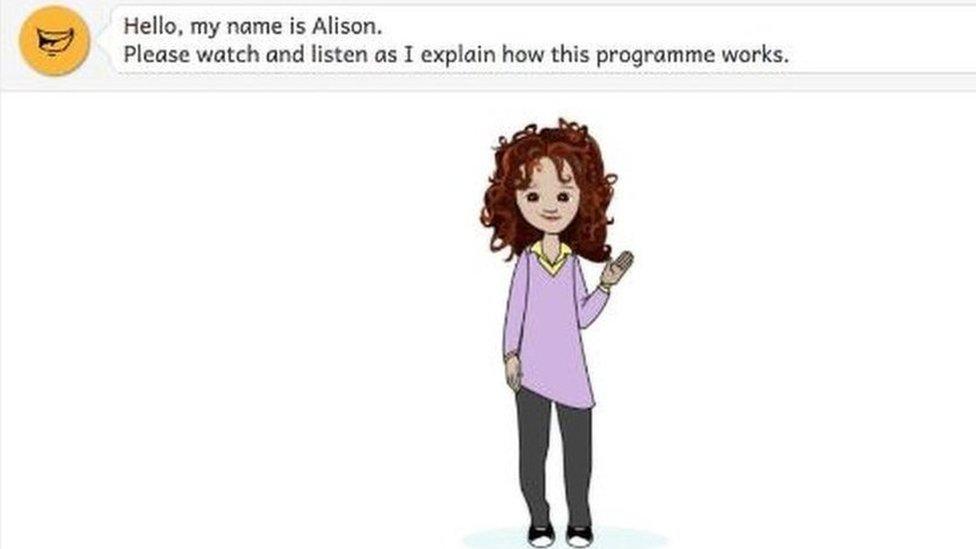
- Published16 September 2018
